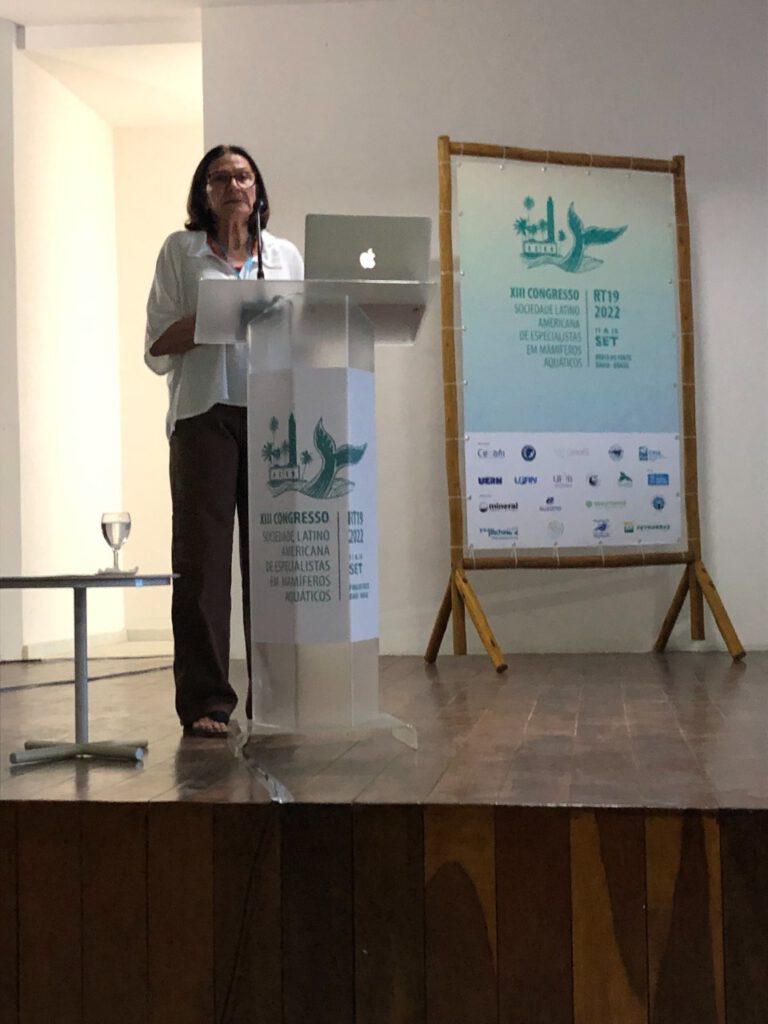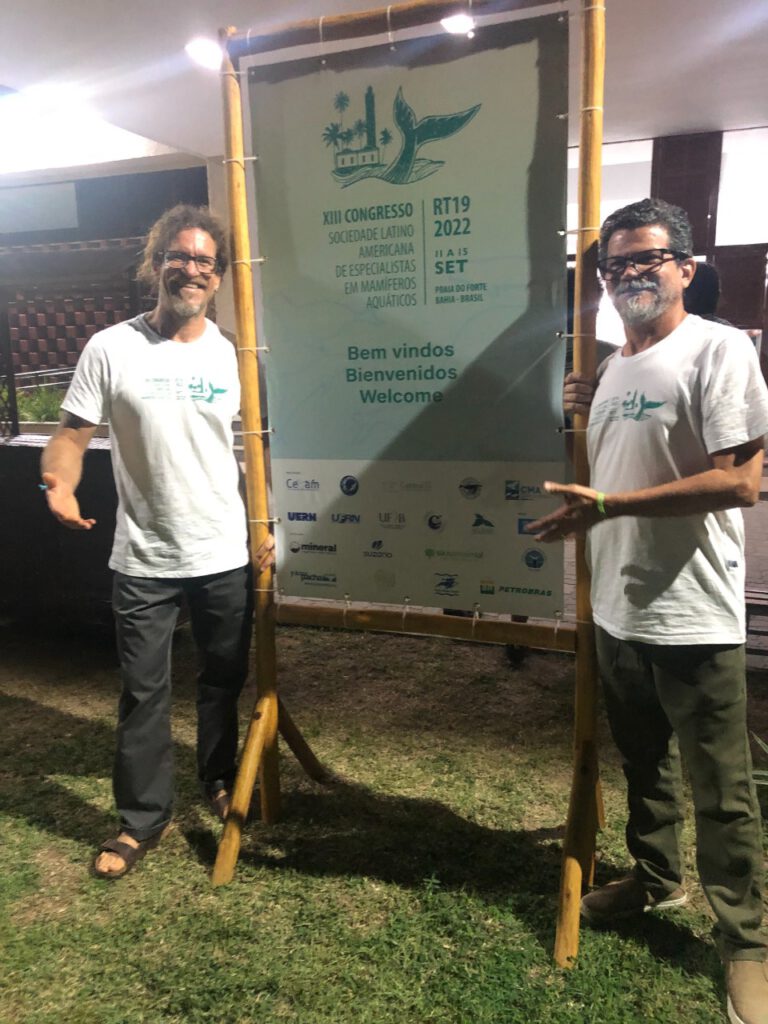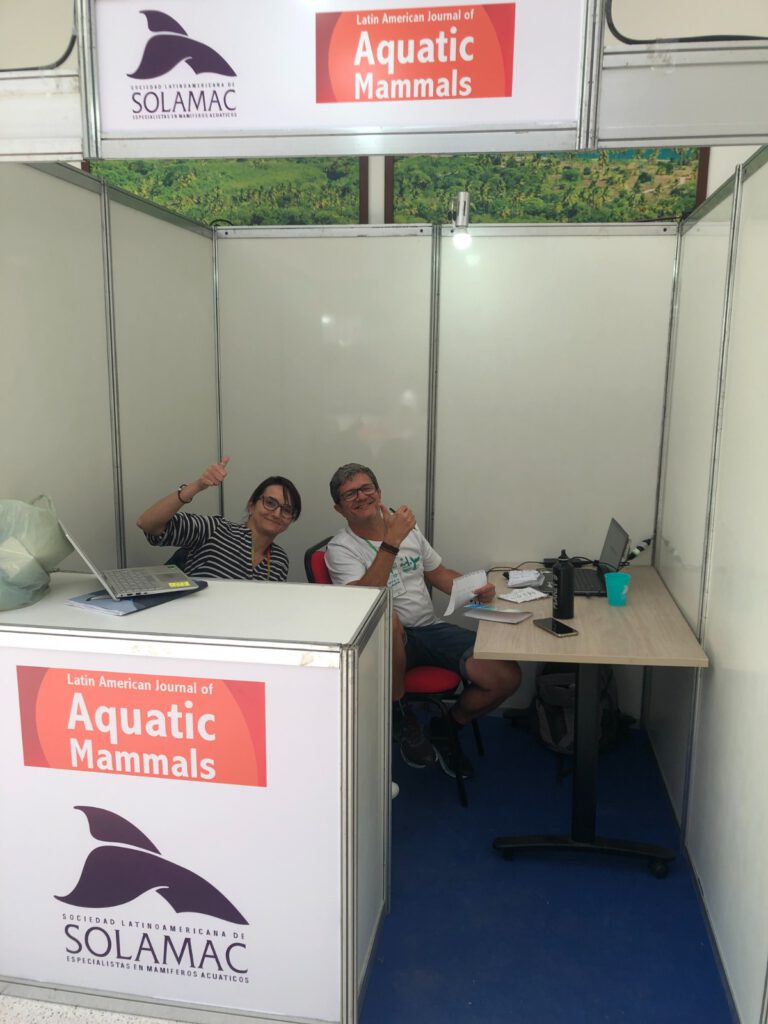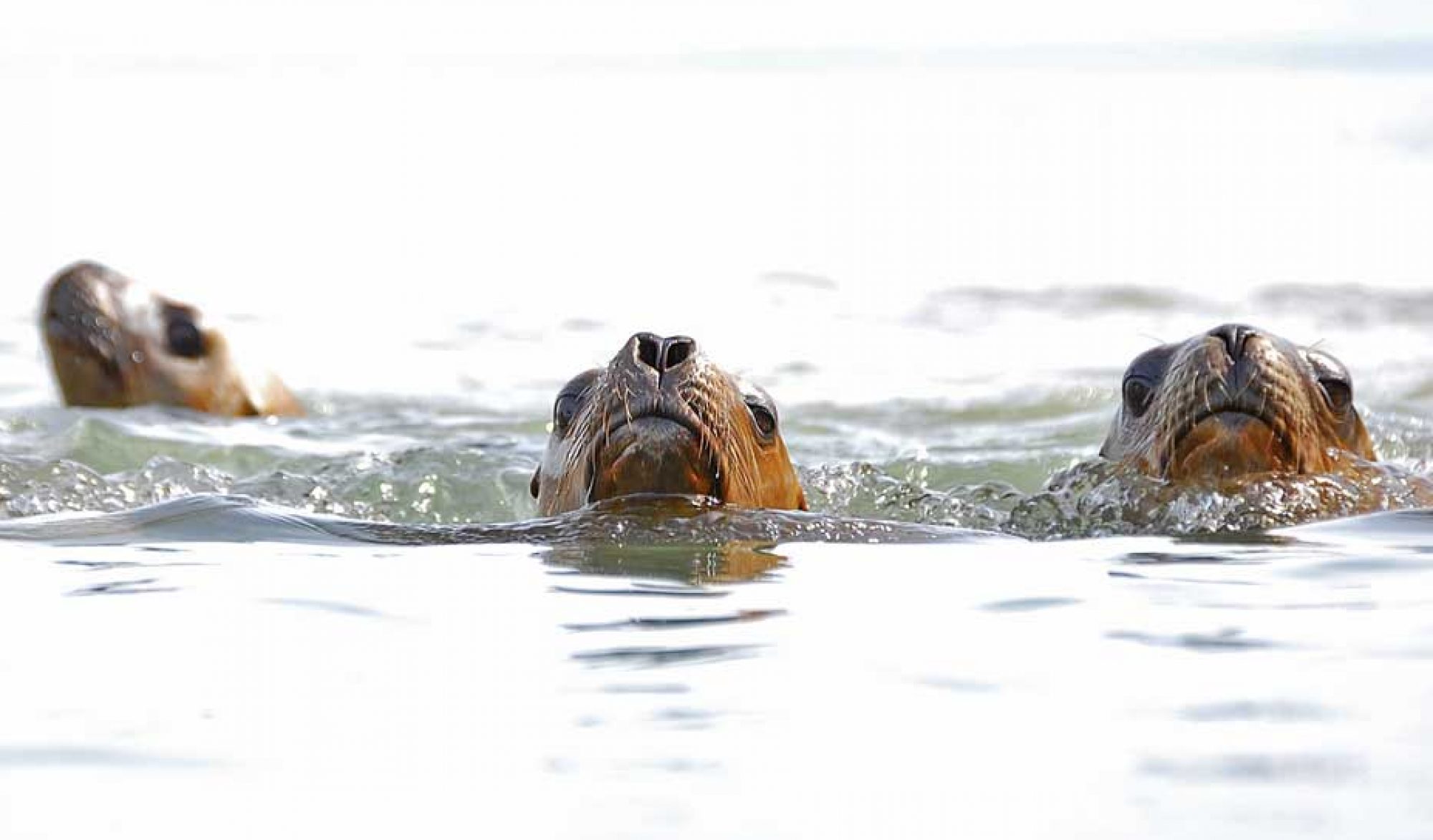
The 19th Working Meeting of Specialists in Aquatic Mammals in South America (19th RT) 19 RT Brasil and the 13th Congress of the Latin American Society of Specialists in Aquatic Mammals (XIII SOLAMAC) in Praia do Forte took place with YAQU PACHA as the main sponsor.
The presentations of the projects and the support of the Mata de São João City Hall were magnificent.
The event, which took place from September 11 to 15, brought together the leading experts on aquatic mammals in Latin America. There were a total of 245 participants, 10 different countries, 294 presentations, and several exhibitors.



